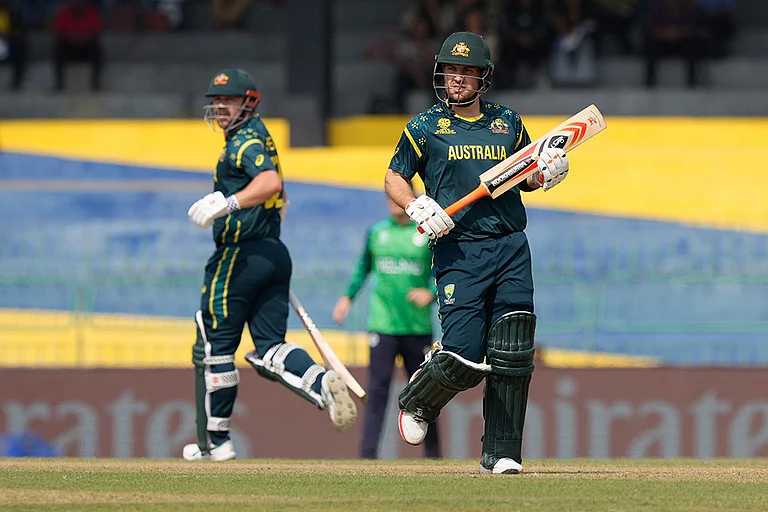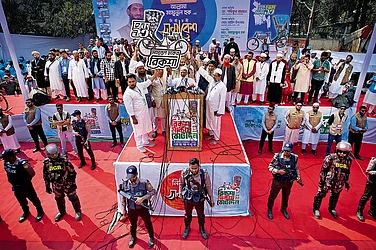A Russian missile hit a museum building in a Ukrainian city on Tuesday, killing at least two people and wounding 10 others, part of a relentless barrage that comes as Ukraine is readying its forces for an expected spring counteroffensive.
Ukrainian officials said the Russian military used S-300 air defense missiles to attack Kupiansk in the Kharkiv region, hitting the museum of local history in the city centre.
The Russian military has repeatedly used S-300s, which Ukraine's air defences can't intercept, to attack ground targets.
Ukrainian President Volodymyr Zelenskyy posted a video from the site that shows the ruined building and emergency responders examining the damage.
“The terrorist country is doing everything to destroy us completely," Zelenskyy said.
“Our history, our culture, our people. Killing Ukrainians with absolutely barbaric methods.”
Zelenskyy said that a museum worker was killed, and Kharkiv regional Gov. Oleh Syniehubov later reported that the body of another victim was pulled from under the rubble.
Syniehubov said that three people were hospitalised and seven received minor injuries.
Kupiansk was captured by Russian forces in the earlier stages of the Russian invasion but was reclaimed by Ukrainian forces in a surprise counteroffensive in September that saw the Russians driven out of broad swaths of the Kharkiv region.
A woman also died in Russian shelling of the town of Dvorichna, near Kupiansk, and two civilians were killed in the eastern Donetsk region, according to the Ukrainian presidential office.
The governor of the Dnipropetrovsk region, Serhiy Lisak, said that two people were wounded in Russian heavy artillery fire that hit the cities of Marhanets and Nikopol on Tuesday evening.
Both are on the western bank of the Dnieper River just across from the Russia-held Zaporizhzhia Nuclear Power Plant, which both Russia and Ukraine say has been endangered by shelling in the region.
The Ukrainian military is now preparing for a new massive counteroffensive, relying on the latest supplies of Western battle tanks and other weapons and fresh troops that were trained in the West.
Zelenskyy on Tuesday met with the top military brass to discuss the battlefield situation as well as prospects for new weapons supplies and the preparation of troops.
“We have to accelerate the pace of weapons supply because every day of delay is the lives of our soldiers,” Zelenskyy said on Facebook.
Ukraine's military intelligence chief, Maj. Gen. Kyrylo Budanov, in an interview with RBC-Ukraine released Monday, described the planned counteroffensive as a “landmark battle in Ukraine's modern history” that would see the country “reclaim significant areas.”
The Kremlin, meanwhile, has regularly reminded the West about Russia's nuclear arsenal in a bid to discourage the U.S. and its allies from ramping up weapons supplies to Ukraine.
The U.S. and its NATO allies have denounced Moscow's nuclear rhetoric as dangerous and irresponsible, but noted that they haven't seen any change in Russia's nuclear posture.
On Tuesday, Dmitry Medvedev, deputy head of the Security Council chaired by Russian President Vladimir Putin, warned that “the world is likely on the verge of another world war” and declared that Moscow wouldn't hesitate to use nuclear weapons if it faced an existential threat.
Medvedev described atomic weapons as pivotal for Russia's survival, saying that “for our country, the nuclear weapons are the joint holding the state together.”
He vowed that the Kremlin will achieve its goals in Ukraine and pointed at Russia's nuclear doctrine envisaging that it could atomic weapons in response to a nuclear attack or an attack with conventional weapons that threatens “the very existence” of the Russian state.
“Our potential adversaries shouldn't underestimate that,” Medvedev said.





















